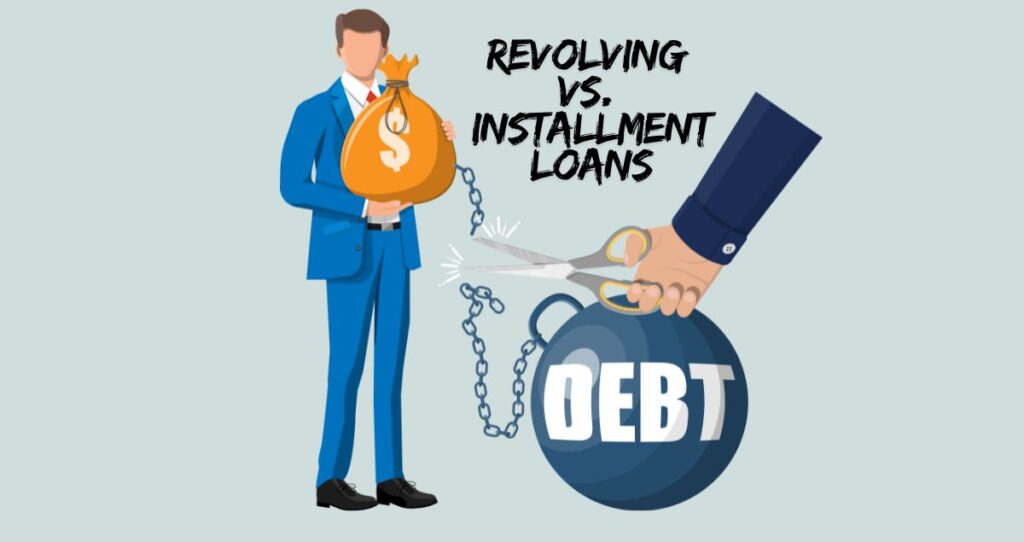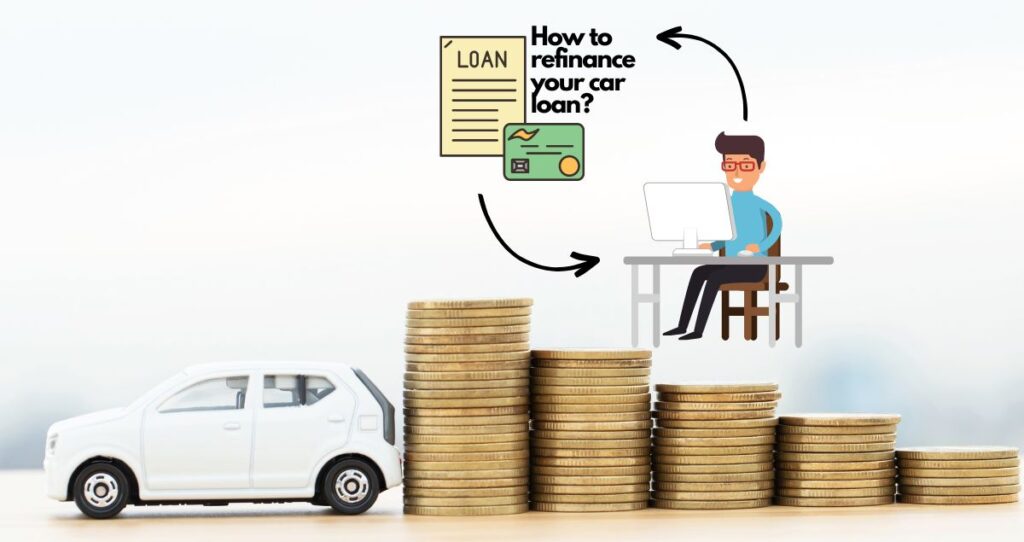Rebuilding credit is one of the most important financial decisions to take control of your finances. While getting started with credit credit-building journey can be intimidating, you can easily establish good credit with less stress if you have the right credit-building strategies. In this article, I will walk you through the 13 most effective ways to rebuild your credit and increase your credit score if you have bad credit or a thin credit file.
Key takeaways
- You can rebuild credit fast by taking advantage of financial products and services you use daily
- Building credit is about financial behavior and how you manage your credit accounts.
- Monitoring your credit and keeping your credit reports accurate and current is an essential step to rebuilding credit fast
- Keeping your credit utilization less than 5% and paying your bills on time have the biggest impact on your credit score
- A credit builder loan, a secured credit card, or becoming an authorized user of a credit card account are easy credit-building strategies if you are new to credit or have bad credit.
- You don’t need to pay anyone to help you rebuild credit or improve your credit score
- Factors that affect your credit score include payment history, credit utilization, age of your credit, credit mix, and new account activities
How long does it take to rebuild credit?
Building a credit history and improving your credit score is like raising a baby. Just like it takes a lot of effort and time to raise a baby, it also requires effort to build credit. Building credit is more than getting a credit card or applying for a loan. Instead, credit building involves your financial behaviors, the credit accounts on your credit reports, and how you manage them.
So, how long does it take to rebuild credit?
Credit history is about your historical performance with credit. Generally, it takes six months of credit activities to establish your first FICO score. However, having good credit can take as long as 3 to 5 years of responsible use. For example, if you have a thin credit file and your score is in the 500s, it can up to 2 years to see a significant improvement in your credit score.
If you have bad credit, however, it might take longer to rebuild your credit as some negative items stay on your credit reports for up to 10 years.
Every decision you make with your credit accounts directly contributes to the health of your credit. Did you make payments on time, how much debt do you have, what is your utilization rate, and do you have negative items on your credit reports such as bankruptcies, foreclosures, evictions, tax liens, charge-offs, or late payments? What is the age of your credit and how many inquiries do you have? These factors and many more affect the health of your credit and credit score and ultimately how long it takes to rebuild credit.
Here are the 13 best ways to rebuild credit fast and improve your credit score.
1. Get a copy of your credit report
The first step in building credit fast is to get a copy of your credit report. You cannot build credit fast without knowing how it is being affected. A credit report contains all information related to your credit accounts, the amount you own, your payment history, your lenders, personal information, and many more.
You need a copy of your credit reports to ensure that:
- All accounts in your report are current
- There are no errors in your report
- There are no fraudulent activities, and
- No overdue negative items are being reported.
You don’t have to pay a single penny for a copy of your annual credit report. You are entitled to a free copy of your annual credit report from all three major credit reporting agencies(Equifax, TransUnion, and Experian) once every 12 months.
You can easily get a copy from each major bureau online from the following website: https://www.annualcreditreport.com/. You can also call this number (877) 322-8228 if you don’t want to get your reports online.
If you want more details on how to get a free copy of your credit report, refer to the following guide.
Related: How Long Does it Take for a Credit Report to Update?
Dispute errors and inaccuracies in your credit reports
You may have bad credit due to inaccurate, errors, identity theft, or other fraudulent activities on our credit reports. Overdue negative items in your credit reports will also continue to weigh down your credit score. After checking your credit reports, you must read them line by line to ensure all information is correct and updated.
If you see anything in your report that should not be there such as errors, clean up your credit reports by disputing it to major credit reporting agencies and your lenders.
Should you find any inaccurate information in your report? Dispute all errors, inaccuracies, and fraudulent activities and bring our accounts to current conditions. This process alone can help you boost your credit score and repair your credit fast.
2. Have removable negative items removed from your credit reports
Bad credits are associated with past financial decisions. Bad decisions you make with your accounts will show on your credit reports and be reflected in your credit score. Negative items can stay on your credit reports for 7 or even 10 years. Although their effects on your credit and credit score will fade, you should not have overdue negative items on your credit reports. If there is any removable negative item, have it removed from your credit reports.
The following are some of the negative items you might find on your credit reports.
- Charge-offs
- Accounts in collections
- Bankruptcies
- Evictions
- Foreclosures
- Medical bills
- Late payments, etc.
If these negative items have been reported on your credit report by errors, have them removed or corrected to rebuild your credit.
You can easily dispute them with corresponding lenders such as mortgage providers, landlords, etc. For example, if you paid off an account but it continues to show on your report, you can ask credit bureaus to delete the information from your credit reports. Ensure you have all proof related to your account activities such as payment receipts, etc.
If the negative items are correct, however, they will stay on your credit report. You can also submit a goodwill letter to your lender asking them to remove the information from your report.
3. Reduce your credit utilization to under 30%
So far, we have been discussing monitoring your credit, getting a copy of your credit report, and cleaning up your reports. These steps are critical as accurate reporting is essential when building credit and improving credit scores.
Another equally important step for building credit fast and increasing your credit score is your credit utilization rate.
Credit utilization represents the amount you spent compared to your total credit limit on revolving accounts such as credit cards expressed as a percentage. For example, if your credit limit is $1,000 and you spent $400, your credit utilization will be 40%.
Credit utilization accounts for 30% of your FICO score calculations.
A higher credit utilization shows that you rely on credit to finance your expenses. That is why your credit score goes lower as your credit utilization increases.
Maintaining a low credit utilization can help you build credit and increase your credit score fast. Experts suggest that you keep your credit utilization to under 30%. However, 30% in credit utilization is high due to interest charges on the balance you carry to the next payment cycle. To minimize the effect of your credit utilization on our credit, keep your credit utilization as low as you can. If you can manage it, bring your utilization to under 5%.
Both FICO score and VantageScore give higher weight to your credit utilization. To avoid incurring interest charges on your accounts and to keep your credit usage low pay off your bills in full.
4. Pay your bills on time
The biggest factor affecting your credit and credit score is your payment history. Major credit reporting agencies apply higher weights to your credit account payment activities. Lenders will not approve you for more loans if you have late payments on your credit reports.
The payment history accounts for 35% of your FICO score and 40% of your VantageScore calculation. To build credit fast and increase your credit score, ensure all your bills are paid on time every month.
Paying your bills in full and on time also prevents you from carrying balances to the following billing cycles. Lenders and creditors apply interest and charges known as the annual percentage rate(APR) on the balance you did not pay in full by the due date.
Some lenders have minimum requirements for each account per month. If you cannot pay the entire balance, at least pay the minimum requirements on each account.
An authorized user of a credit card account is a person who gets added to an existing credit card account. For example, parents can add their children or spouses to their credit card accounts as authorized users. After you have become an authorized user, you will receive a credit card linked to the primary account. Some credit card issuers charge an annual fee to become an authorized user of a credit card account.
As an authorized user, you are not responsible for any activity on the account. All responsibilities such as paying bills, monitoring credit, credit limit increase, etc, fall in the hands of the account owner.
Most lenders report authorized user activities to major bureaus which can help you rebuild your credit and increase your credit score. Of course, you must use the credit card responsibly and pay the original owner on time. You should also become an authorized user when the account owner has a good credit score and excellent credit history. This way, you will benefit from every positive activity on the account.
6. Get a secured credit card
One of the best ways to rebuild credit and increase your credit score is to get a secured credit card. This card comes in handy when you cannot qualify for loans and regular credit cards or if you suffer from overspending.
A secured credit card is a credit card where you deposit money before you open an account. This deposit becomes collateral in case you fail to make payments. Each secured credit card comes with its deposit amount and line of credit.
Here are the benefits of secured credit cards when rebuilding credit and wanting to increase your credit score.
- Secured credit cards come with lower credit limits as your credit limit correlates to your deposit
- If you cannot pay your credit card balance, the lender will take your deposit to cover the balance preventing you from debt accumulation
- They are easy to qualify for
- You will get your deposit back after closing the account
- Activities on the account will help you rebuild credit like a regular credit card.
- The credit history you build with a secured credit card will help you qualify for regular cards and loans.
7. Request credit limit increase
When rebuilding credit, you need to employ every tip and resource at your disposal. One credit rebuilding credit strategy that increases your credit score fast is requesting a higher credit limit. As you use your card and pay off your bills on time, your credit card issuer will eventually increase your credit limit automatically.
Some lenders, however, take a long time to increase your credit limit. Ask your credit card issuer to raise your credit limit rather than waiting a long time for it to happen automatically. Your lender will evaluate your request and how you have been using the balance you have been given already. If your history looks good, the lender will increase your credit limit.
How can increasing your credit limit help you build your credit fast?
Good credit is all about how you use your credit. If you have a higher utilization rate, a higher credit limit will automatically reduce your credit utilization. By lowering your credit utilization, your credit score will go higher. A higher credit score indicates that you have healthy credit.
Keep in mind that some lenders will check your credit file. This activity will result in a hard inquiry into your credit reports. Hence, lowering your credit score by a few points. This reduction in credit score will be temporary as hard inquiry will not affect your credit score after 12 months. However, you should expect hard inquiries to remain on your credit report for 24 months.
8. Do not apply for credit very often
When you apply for new credit, the lender runs a hard pull on your credit file. This activity results in a hard inquiry on your credit report. A hard inquiry drops your credit score by 5 to 6 points. If you apply for credits many times at different time intervals, you might hurt your credit score and credit history.
If you need to apply for many loans, apply for them during the same time interval. For example, instead of applying for a mortgage and a car loan next month; apply for those loans in two weeks. Some credit bureaus will treat certain credit inquiries as a single inquiry if they are submitted in a 14-day timeframe. The typical range is between 14 to 45 days. As long as your inquiries are submitted in this time frame, some scoring models will treat them as a single inquiry. This exception does not apply to all types of loans.
Having all your inquiries grouped into a single inquiry will result in a much lower reduction in your credit score. Instead of losing 24 points from three inquiries, you might lose only 6 points because all those inquiries were grouped into a single inquiry.
Rebuilding your credit fast also requires you to protect what you have already. That is why you need to avoid destroying your credit any further. Smart choices lead to greater results. To minimize the impact of new credit accounts on your credit score, apply for loans only when necessary and do not submit too many loan applications.
9. Do not close a credit card account
Keeping unused credit card accounts open is a great way to rebuild credit fast and increase your credit score.
One big mistake people make is to close a credit account. For example, people apply for many credit cards and later realize that they no longer need all of them. So, they close some of those accounts.
If you are rebuilding your credit, avoid closing accounts you are not using. This is because closing an account might affect your credit mix, another factor affecting your credit score and potentially lowering your credit score.
Here is how closing a credit account might affect your credit history.
- Closing a credit card account will increase your credit utilization. By closing an account, your utilization rate could automatically go higher since the credit limit from the account you closed will not be considered in the new credit limit. A higher utilization rate might lower your credit score.
- Closing an account will affect your credit mix. Your credit mix is a major factor in your credit score. Closing a credit account could weaken your credit mix and potentially lower your credit score.
- Closing a credit account will result in lowering the age of your credit. The age of your credit is the average age of all credit accounts you have. If you close an account, especially an old one, you will lower the overall age of your credit. Your credit age accounts for 15% of your FICO score.
10. Have your landlord and utility companies report your payment activities to credit bureaus
One of the best ways to rebuild credit most people overlook is to have their utility and rent payments reported to major credit bureaus. Most companies do not report this information to credit reporting bureaus, meaning they are not used in building credit. If you pay your bills on time, ask these businesses to report your account activities to major credit reporting agencies.
Once this information is available to credit bureaus, it will be included in your credit rating. This is an effective way to rebuild credit fast without spending extra resources.
11. Consolidate your debts
Debt consolidation and balance transfers can help you move your debts to other lenders or group them into one account. If you have bad credit due to uncontrollable debts, it is probably time you look into ways to manage your debts.
Debt consolidation can lower interest rates on your loans, allowing you to pay them off fast. The faster you get out of bad debt, the easier you will improve your credit.
12. Pay off accounts in collections
Failing to pay your bills on time results in late payments on your credit reports. Missing the due date does not mean late payment will be on your credit report. Creditors don’t report late payments to major credit reporting agencies until they are 30 days past due. If you just missed the due date, ensure the accounts are cleared within the 30-day window to avoid late payments on your credit reports.
Depending on the type of loans on your credit reports, late payments that are not covered within 90 to 120 days past due become charge-offs and the lender might send them to a debt collector.
If you have accounts in collections, pay them off right away.
The collection will still show on your accounts for 7 years, but your credit will improve. Some credit scoring models from different reporting bureaus put less weight on paid-off collections than active accounts in collections.
You can also strike a deal with your lender or debt collector by asking them to delete collection accounts in exchange for a full payment.
13. Pay down your debts
The amount of debt on your credit reports affects your credit recovery process. Too much debt compared to your income lowers your credit score due to a higher debt-to-income ratio. The DTI ratio is the ratio of your monthly debt payments to your monthly gross income.
Having a higher DTI ratio makes you a risky borrower. Most lenders prefer borrowers with DTI ratios of 30% or under.
To rebuild your credit and improve your credit score, pay down your debts to improve your DTI ratio.
Benefits of having good credit and credit score
A healthy credit history and FICO score are essential to qualifying for loans and credit cards. Lenders and many businesses check your credit score to assess your creditworthiness. Some companies also use credit checks as part of their candidate screening process. The point here is that credit scores have become more important than ever.
What are the benefits of having a good credit score?
Unless you have cash to buy everything, you might take out loans to finance large purchases like buying a house. When taking out loans, lenders rely on your historical performance with credit to estimate how you will behave in the future. In other words, lenders use your credit score and history to assess your creditworthiness. The better your credit score, the easier you can qualify for loans with lower rates and better terms.
Here are the benefits of having a good credit score.
- A bad credit score makes you a risky borrower(deep prime and subprime). For this reason, you will be denied credit or pay a higher interest rate to offset the risks lenders are taking by lending you money.
- Good credit and high credit scores show that you use credit responsibly. For this reason, there are fewer risks involved in lending you money. That puts you in the prime and superprime categories of borrowers depending on your credit score. As a result, you will qualify for better rates with affordable terms.
- Your credit score can help you qualify for services you would otherwise have to pay for if you did not have a good credit score. For example, a landlord can waive a security deposit if you have a good credit score. A good credit score shows you are more likely to make all your payments in full and on time. For this reason, you will be a good tenant.
- Utility companies also use your score to give you discounts or waive the deposit.
- A good credit score can help you land your next job. Some employers might use information from your credit reports to give you or deny you a job.
The bottom line
Building credit is not a one-day process. It is a process that builds upon your daily credit account activities. To build credit fast and improve your credit score, start by understanding where you stand and how current information on your credit reports affects the health of your credit.
You can easily boost your credit by cleaning up your credit reports. Besides cleaning up your credit reports there are other ways to rebuild a bad credit including paying your bills on time, reducing your credit utilization, keeping your accounts open, and managing your debts.








